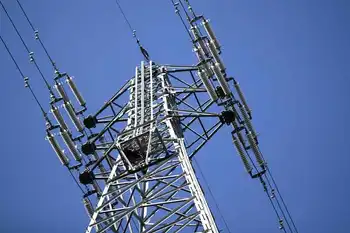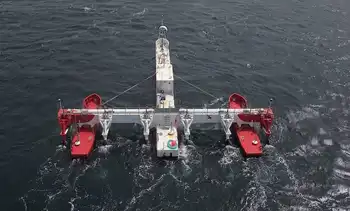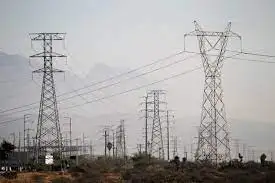Energy debate comes down to jobs
By St. Petersburg Times
Arc Flash Training CSA Z462 - Electrical Safety Essentials
Our customized live online or in‑person group training can be delivered to your staff at your location.

- Live Online
- 6 hours Instructor-led
- Group Training Available
Will it be jobs for Florida Power & Light and its parent company NextEra Energy, which has quietly lined up lobbyists and campaign contributions to push legislation to allow it to raise rates for all of its 4 million customers to pay for solar power plants?
Will it be jobs for a consortium of alternative energy companies, including agriculture giant Florida Crystals, that say they can produce solar and biomass at less cost to customers than the utility giants?
Or will it be jobs for solar panel manufacturers and installers, who mount rooftop assemblies on homes and businesses? They say they can feed energy into the existing power grid and offset the need for utility companies to build expensive power plants.
All hope the legislative solution being crafted in the House and Senate will include each of them, but none has any guarantees. In each of the last three years, a bill to encourage renewable energy development has been proposed and died. Florida's new governor also is no fan of renewables.
Gov. Rick Scott told voters during the campaign that he doesn't believe in climate change and is not persuaded that investing in renewable energy is a good deal. His proposed budget would eliminate the Florida Energy & Climate Commission, the volunteer board that administers state and federal energy grants and makes recommendations on state climate policy.
"There's room for the utilities to produce electricity and get it paid for, and there's room for small and midsize companies as well," said Richard Pinsky, a lobbyist for the Distributed Energy Coalition, a group of companies seeking an alternative to utility-only generation of renewable energy.
But even the chief promoter of the renewables legislation for the last two years believes that anything short of giving the utility industry the ability to control the market is derided as deregulation.
"It'll be a tough sell," said Sen. Mike Bennett, a Bradenton Republican and sponsor of the bill to allow utilities to bypass the Public Service Commission and raise their rates to build renewable energy plants. "The power companies have always been able to convince the legislative process that deregulating power is bad."
Bennett's bill, SB 1336, would not only open the door to expanded renewables, it could allow FPL to earn more than $1 billion in profits over four years by allowing its rates to increase by a percentage of its annual revenue to pay for the new solar energy plants. The company and its parent, NextEra Energy, have made passage of the bill its top legislative priority, steered $2.4 million into legislative political coffers, and hired Mike Sole, former Gov. Charlie Crist's top environmental regulator, to be its top lobbyist.
"They are guaranteed a profit based on their capital investment," Bennett explained. "So the more solar plants they build, the more equipment they buy and the more money they are allowed by law to make. They don't want somebody else building the solar because they don't get to profit."
In a recent meeting with the Miami Herald editorial board, FPL chief executive Armando Olivera said that while "there is very little growth" in customer demand right now, the company wants the Legislature to allow it to build 500 megawatts of solar-powered energy because "the fuel diversity can bring a lot of jobs here."
FPL was the only utility company to benefit from the 2008 bill that allowed it to charge customers for 101 megawatts of solar-generated energy. It cost $643 million to its customers, or $1 a month for the average customer who uses 1,200 kilowatt hours a month.
Speaking to a House committee in February, Buck Martinez, head of FPL's renewable energy division, said that the company's solar projects have earned international acclaim, come in under budget and have dropped significantly in price.
He said that while his company supports rooftop solar projects, the only people who benefit are those who have the money to install solar panels on their buildings and homes.
"The benefits would not be borne by the state," he said. "They would only benefit the individual that can afford to put it on their rooftop."
But Etan Gumerman, a Duke University professor who presented the report, Renewable Energy in the South, to the House and Senate energy committees, countered that all FPL customers benefit when others install rooftop solar because it avoids the need to build more expensive power plants in the future.
"Just because I may be a freeloader, I can still benefit if you put something on your roof," he said.
Renewable energy proponents say the Legislature should set a target for the amount of renewable energy it wants distributed in Florida and a time line for achieving it, as 29 other states have done.
"Florida is missing out on an enormous opportunity to attract clean energy to the state," said Susan Glickman of the Southern Alliance for Clean Energy, a consortium of alternative energy companies.
Bennett also agrees with the argument against his bill, saying he doesn't like the idea of giving the utilities the so-called early cost recovery that asks customers to pay for their construction costs. But he says he's a pragmatist and is not convinced that the Legislature will do anything to encourage a system that allows for more people to distribute energy by installing rooftop systems.
"Power companies do not want to give up control," he said. "I'm a huge fan of the power companies, but I'm also a huge fan of what's fair."











